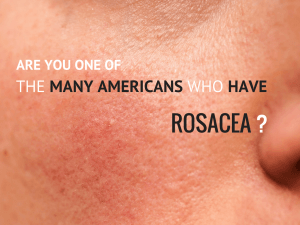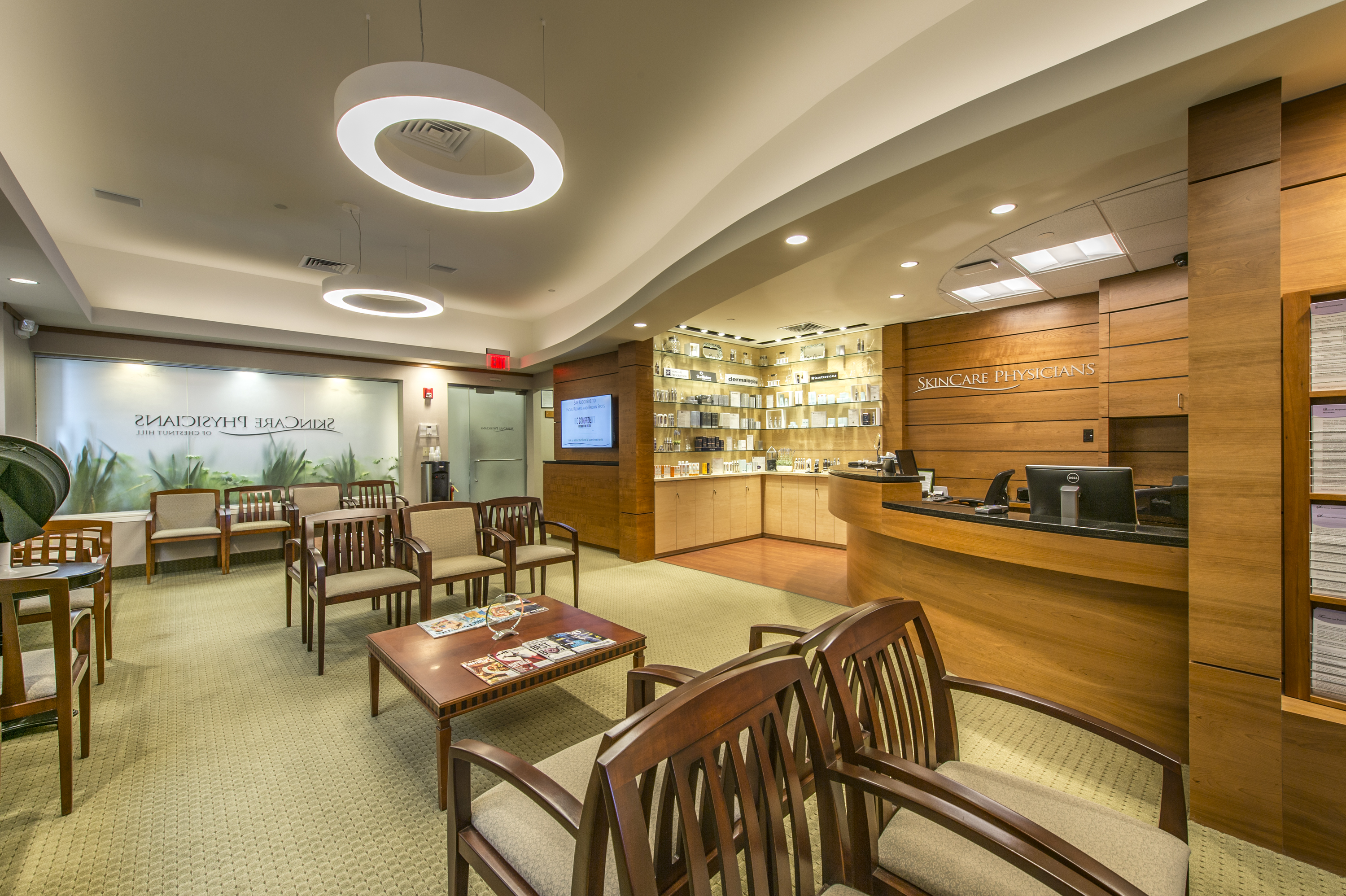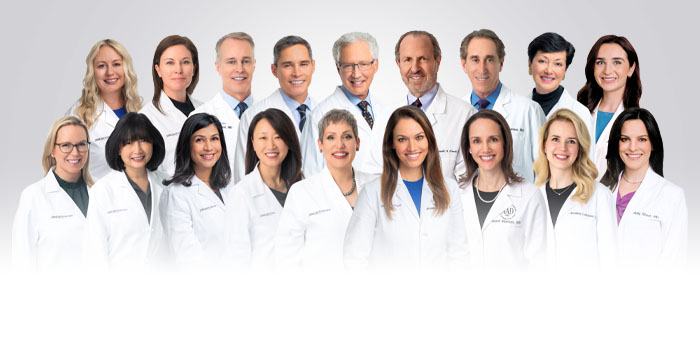- Home
- Blog
- Medical Dermatology
- Could I be one of the many Americans who have Rosacea?
Could I be one of the many Americans who have Rosacea?
 Can you be one of the 16 million Americans estimated to be affected by Rosacea, a common inflammatory condition often starting in adult age? Dr. Laurel Morton, a dermatologist at SkinCare Physicians, explains what you need to know about rosacea and what you can do about this widespread disorder causing red, inflamed, bumpy skin.
Can you be one of the 16 million Americans estimated to be affected by Rosacea, a common inflammatory condition often starting in adult age? Dr. Laurel Morton, a dermatologist at SkinCare Physicians, explains what you need to know about rosacea and what you can do about this widespread disorder causing red, inflamed, bumpy skin.
What is rosacea and what causes it?
Let’s start with a definition: Rosacea is a disorder affecting the skin that causes flares of facial redness. This can come in several forms. Some patients exhibit very rosy cheeks and noses with flushed skin. Others have an adult form of acne with small pink bumps and pimples that often form on the cheeks, nose and chin. Rosacea can even affect the eyes in some individuals, leading to itchy or dry eyes. Less commonly, rosacea causes a thickening of the skin of the nose. Often, people will experience multiple forms as described above.
The exact cause of rosacea is not completely understood and generally, physicians believe that multiple causes are at play. Most likely, people with rosacea are genetically predisposed to this condition and experience other contributing factors including: facial blood vessels that are overly reactive, inflammation of the skin and increased susceptibility of nerves to respond to triggers such as spicy food, exercise or weather. Overgrowth of miniscule Demodex mites, which commonly live on human skin, may also contribute.
How do I know if I have rosacea?
Signs that you may have rosacea include:
- Persistently pink or rosy skin, especially at the nose and cheeks
- Small broken blood vessels on the cheeks and nose
- Flushing of facial skin occurring after triggers such as spicy foods, alcohol, warm drinks, exercise or weather changes
- Small pink bumps or pimples often appearing at the nose, cheeks and chin
- Skin texture changes or enlargement of the nose
Oftentimes, it can be difficult to know for sure if you have rosacea. Your dermatologist can help you make the diagnosis and provide suggestions for treating rosacea.
What can I do about treating my rosacea?
Fortunately, many treatments are available for rosacea. When pimples and bumps are predominant, topical or oral medications can be very helpful. Commonly prescribed topical creams include metronidazole, azelaic acid, ivermectin or sulfur-based products. At times, oral antibiotics such as doxycycline are useful for more difficult-to-control pimples.
The redness and broken blood vessels of rosacea can be more difficult to treat with medications. Topical brimonidine can provide temporary relief by causing blanching of superficial facial blood vessels.
A treatment option that provides more long-standing results is the use of lasers, which are safe, effective and help to break up the superficial broken blood vessels of the face. At SkinCare Physicians we frequently use a pulsed dye laser or KTP laser to help patients attain incredible improvement in their rosacea.
If you have rosacea, it certainly helps to know that there are many effective treatments available! Please contact us at SkinCare Physicians so we can help you find a successful treatment plan.
Related article:
A new effective approach to treating facial redness and broken blood vessels



Leave a Reply